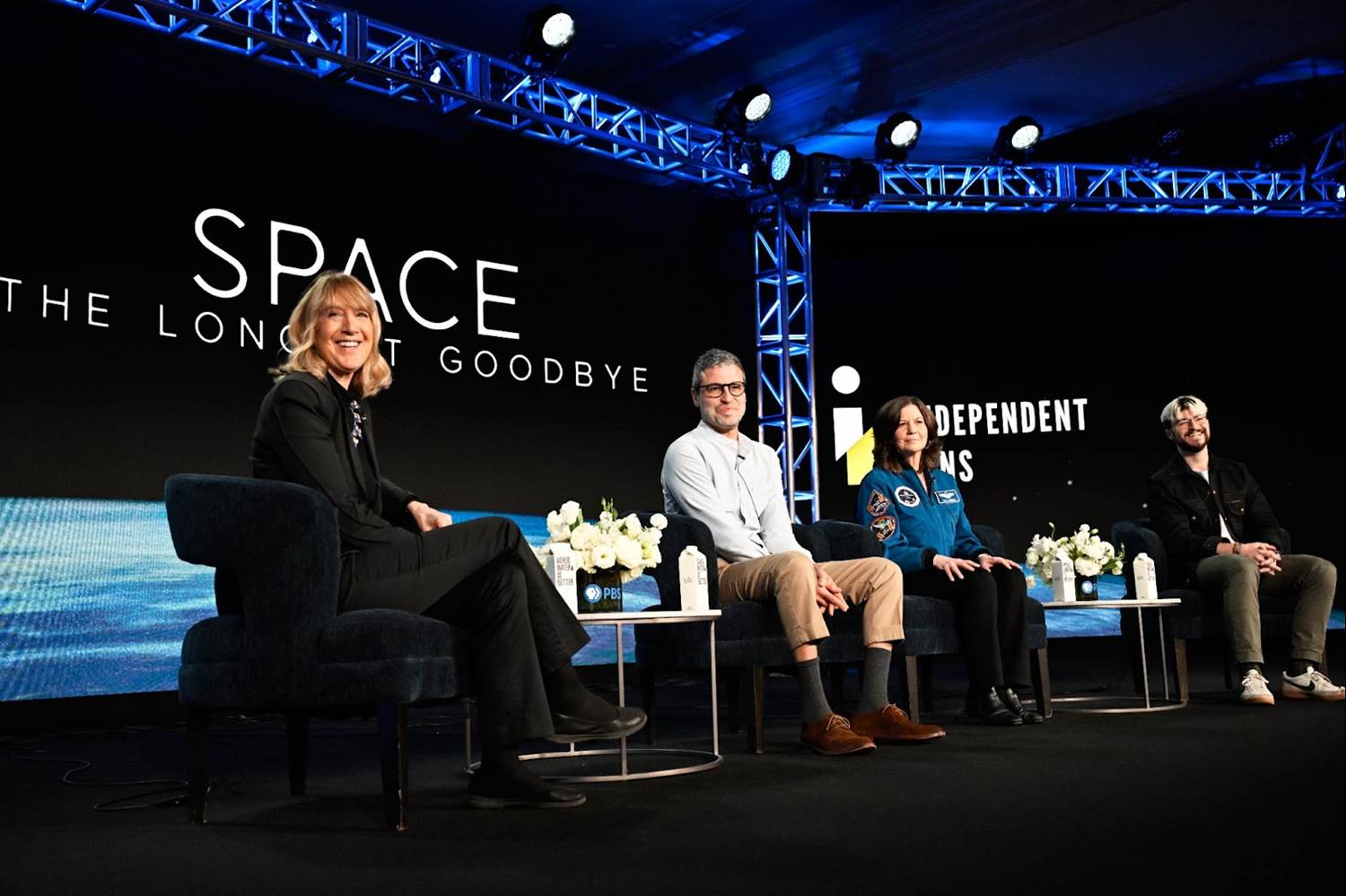May 4th is Star Wars Day (“May the 4th be with you”), and May 5th is Cinco de Mayo. You can keep the celebrations going today, May 6th, with a twofer—National Astronaut's Day and National Space Day. That’s why PBS chose this day for the broadcast debut of the new Independent Lens documentary Space: The Longest Goodbye, which premiered earlier this year at the Sundance Film Festival. “When Ido [Mizrahy, director] came to us, he didn't yet have all the approvals,” Independent Lens executive producer Lois Vossen revealed at the TCA Winter Press Tour last January. However, Lois could tell that Ido’s resilience was strong enough to make the film, and with PBS’s help, NASA gave the documentary filmmaker the clearance needed to make the film.
Space: The Longest Goodbye delves into the emotional rollercoaster experienced by both astronauts and their loved ones left behind on Earth. It hones in on the implications of these emotional challenges for future, longer missions as NASA gears up for a three-year journey to Mars. Like The Right Stuff, assembling the right team presents a myriad of unique challenges. “When I met Dr. Al Holland, who is the main psychologist in the film, I said, ‘Oh, that's easy, you're just going to pick a bunch of people who really don’t have too many people attached to them on Earth,” director Ido Mizrahy shared, quickly discovering why that’s not the case. “He said you could do that, but then, are those people making smart decisions on their way to Mars and back? Are they making thoughtful decisions if they don’t have people they need to return to? And then, what's the right dynamic between the four or six people they're going to send?” Thankfully, expectations of astronauts have shifted over the years, with mental health no longer something they feel obligated to keep private.
“Once you're up there, and after a month or so, you get really good at doing what you're supposed to do,” explained former astronaut Dr. Cady Coleman, who is one of the film’s participants. Space: The Longest Goodbye seeks to look at the lengthy Mars mission through participants like Dr. Coleman, who have spent prolonged periods of time in space. As a mother, it was tough being separated from her son for so long, but she encountered an even stranger phenomenon upon her return to Earth. “There was some grief involved in that I just really thought people were supposed to be there, and I was proud to be one of the people who was,” she shared. “To then be in a plane, I didn’t even want to look out the window for probably a month or two really because it just brought back the feeling of being above the Earth back to me, and it was hard to leave a place that meant so much and work that meant so much to me.”
“From a very young age, I realized the importance of what my mom was doing up there,” added Dr. Coleman’s son, Jamey Simpson, another film participant. Through home video footage, viewers experience what it was like for him to be separated from his mother for extended periods of time while she was in space. “There was no room for me to be upset with my mom. But on the other hand, that anger of being frustrated about my mom being gone for so long manifested itself in the people around me.” While Jamey experienced misplaced frustration over his mother’s absence, growing up around other children whose parents were astronauts helped, and since Dr. Coleman was on an orbiting space station, they were able to communicate regularly. “She would call just after our dinnertime on the East Coast. We would run out to the porch, and we could see her arcing across the sky. We're talking to her on the phone, and it's incredible to think that that little pinpoint of light going across the sky is somebody that you love, no less your mother. That is how I said goodnight to my mom every night.”
Sweet stories like that will be more complicated for astronauts on the first human mission to Mars. “I think this is a really important film,” Dr. Cady Coleman concluded. “It puts the human into human space flight. It puts the human into very hard endeavors, of which we have many that are just simply earthbound. And somehow, when you talk about something like this that happens in space, it makes people pay attention, and it draws them to it.”
Space: The Longest Goodbye is available to stream on the PBS App and also accessible via PBS’s flagship YouTube channel.

